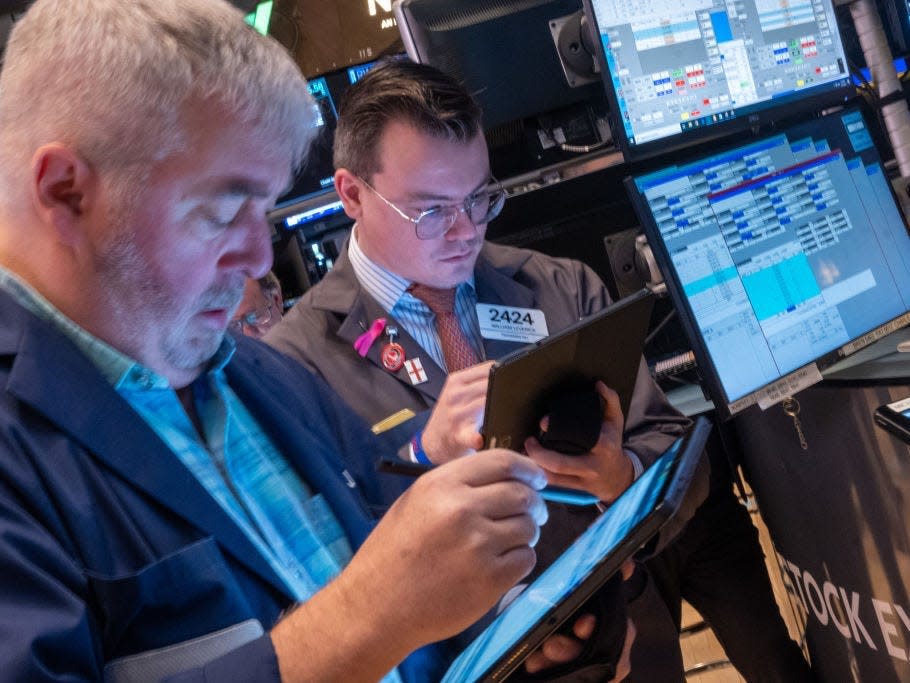Stock market today: US futures dip ahead of four-day trading week

US stocks dipped head of the bell on Monday.
Brent Crude prices ticked higher amid ongoing tensions in the Middle East and Ukraine.
Investors are braced for a data-heavy week that will shed more light on inflation's direction.
US stocks dipped ahead of the opening bell on Monday ahead of a holiday-shortened trading week.
S&P 500 futures were down 0.13%, while Dow Jones Industrial Average futures were 0.12% lower shortly before 6 a.m. ET, while Nasdaq 100 futures fell 0.2%.
Elsewhere, yields on 10-year US Treasury notes were starting the week marginally higher.
Brent crude oil was trading above $85 a barrel, recouping some of last week's losses. Fading hopes of an immediate ceasefire in the Israel-Gaza conflict and attacks in Ukraine have pushed oil prices back up.
Investors are looking ahead to a data-heavy week that will add more color to last week's Federal Reserve meeting.
Figures on new home sales will be announced on Monday, followed by durable goods and consumer confidence on Tuesday, the final consumer sentiment and pending home sales on Wednesday, and the final release of fourth-quarter GDP, trade data, and initial jobless claims on Thursday.
But most closely watched by the Fed will be the personal income and spending report, which contains crucial core PCE inflation data. The PCE Index is expected to have risen 0.4% in February, the biggest increase since September.
It will be released on Friday when markets are closed for the Easter holiday, meaning traders must wait until the following Monday to respond.
The shortened week will close out what is expected to be the fifth consecutive month of gains for stocks.
"Equity markets have had a buoyant first quarter. Now, as the second quarter approaches, we think investors should prepare their portfolios for "the next stage" of two primary market drivers: Major central banks' rate-cutting cycles getting underway, and a broadening of AI adoption and implementation," said UBS chief investment officer Mark Haefele in a morning note.
Read the original article on Business Insider
